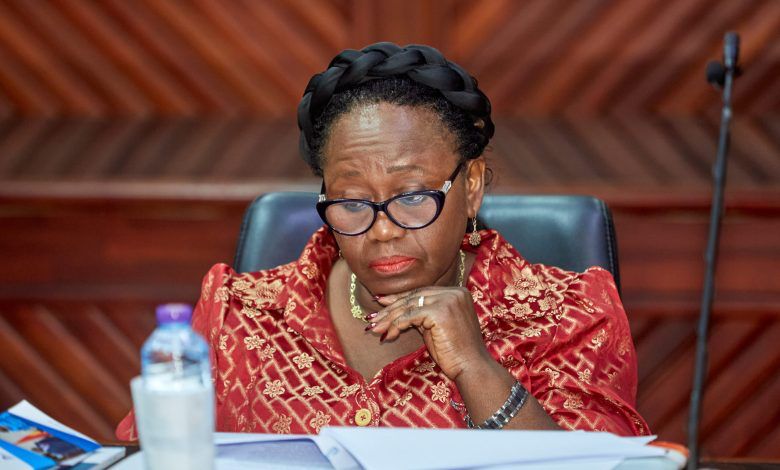The suspension of Chief Justice Gertrude Araba Esaaba Sackey Torkornoo by President Mahama has sparked significant concern and debate within Ghana, particularly regarding its implications for judicial independence and gender equality. The International Federation of Women Lawyers (FIDA-Ghana) has voiced strong opposition to the suspension, arguing that it sets a dangerous precedent and could deter qualified women from accepting high-level positions within the government. FIDA-Ghana’s main concern revolves around the potential chilling effect this action could have on women’s participation in public life. The organization emphasizes that such moves weaken public trust in constitutional institutions and create an environment where competent individuals, especially women, may hesitate to serve their nation in critical roles. This apprehension stems from the fear of being subjected to similar arbitrary actions, undermining their professional standing and personal security.
At the heart of FIDA-Ghana’s argument is the belief that the suspension undermines the progress made towards achieving gender parity in leadership positions. They highlight the NDC’s “Resetting Ghana” manifesto, which pledged increased women’s participation in governance, and the Affirmative Action (Gender Equity) Act, 2024 (Act 1121), which sets a 30% representation target for women. The suspension of the Chief Justice, a prominent female figure in the judiciary, is seen as a direct contradiction to these commitments. FIDA-Ghana contends that the action sends a negative message about the government’s sincerity in promoting gender equality and fulfilling its promises to the women of Ghana. The organization views this suspension as a setback for the ongoing efforts to break down barriers and create a more inclusive and equitable political landscape.
Further exacerbating the situation is the perceived lack of transparency surrounding the suspension process. While President Mahama cited a prima facie case against the Chief Justice based on three separate petitions, the details of these petitions remain undisclosed. This lack of transparency raises concerns about the fairness and impartiality of the process, leading to speculation about potential political motivations behind the suspension. FIDA-Ghana advocates for greater transparency to ensure accountability and maintain public trust in the judicial system. They argue that a clear and open process is essential to protect the integrity of the judiciary and prevent perceptions of undue influence or political interference.
FIDA-Ghana also calls for swift reforms to strengthen the protections afforded to office holders, particularly women occupying high-level constitutional positions. They argue that the current framework leaves individuals vulnerable to politically motivated actions and arbitrary removals. The organization emphasizes the need for clear guidelines and procedures that safeguard the independence and security of these positions. Such reforms, they believe, are crucial to attract and retain qualified individuals, especially women, who may be hesitant to accept positions with precarious tenure and limited protection against politically driven actions.
The suspension of Chief Justice Torkornoo has brought into sharp focus the challenges facing women in leadership roles within Ghana’s government. It highlights the ongoing struggle for gender equality and the need for stronger institutional mechanisms to protect against potential discrimination and arbitrary actions. The incident underscores the importance of transparency and accountability in government processes and the crucial role of civil society organizations like FIDA-Ghana in advocating for the rights of women and promoting a more just and equitable society.
Beyond the immediate impact on the Chief Justice, this event carries broader implications for the future of judicial independence and gender equality in Ghana. It raises questions about the robustness of the country’s constitutional framework and the effectiveness of mechanisms designed to protect the integrity of its institutions. The outcome of the inquiry committee formed by the President will be closely watched, as it will significantly influence public perception and shape the future trajectory of judicial appointments and removals. The case of Chief Justice Torkornoo serves as a critical test for Ghana’s commitment to upholding the rule of law and ensuring equal opportunities for all its citizens, regardless of gender.


